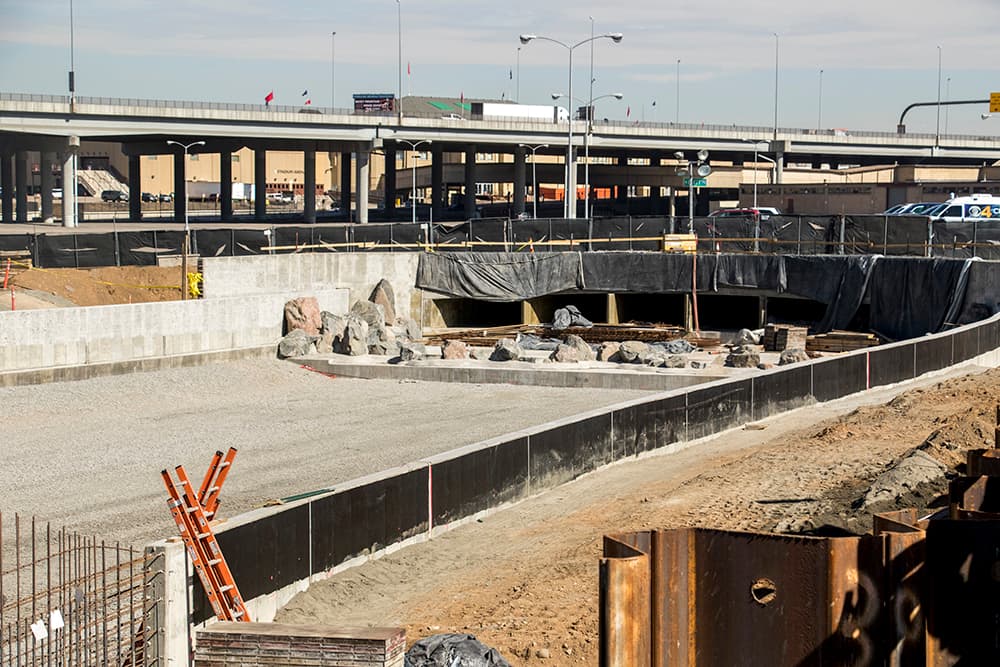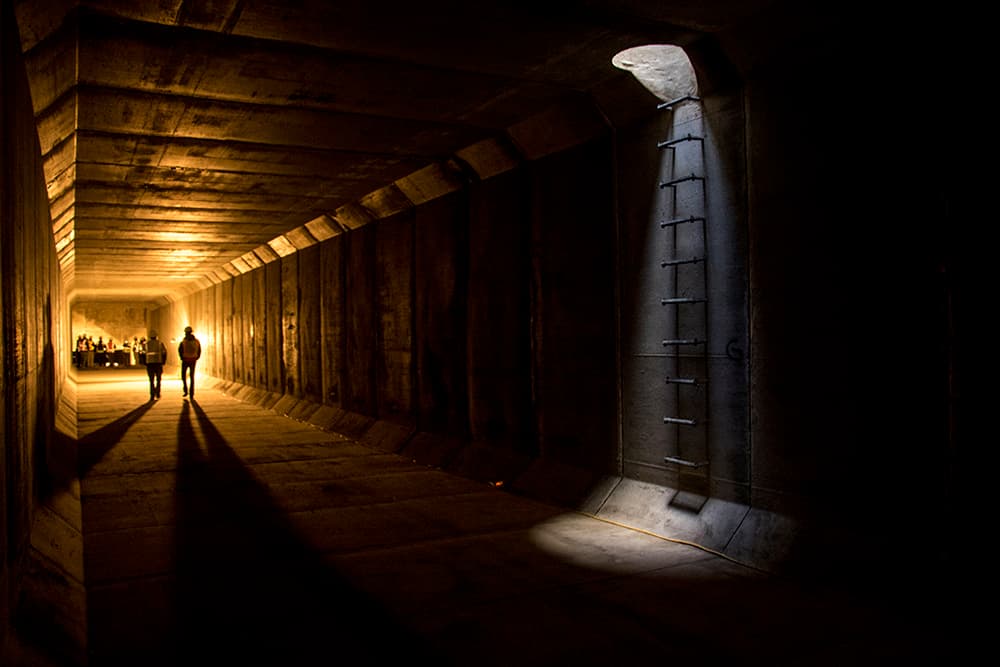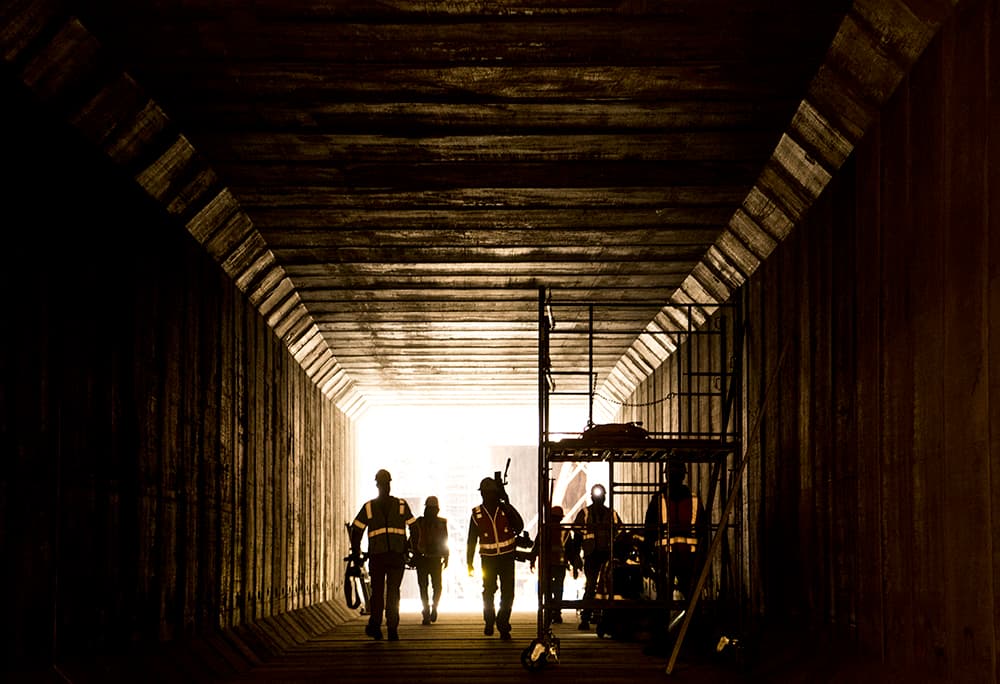Recent storms caused erosion at a new flood-control channel in north Denver, raising alarm bells for some observers.
However, city staff say that it's a temporary issue that will be resolved as construction progresses, and they're installing boulders to try to prevent further erosion.
Here's what happened.
The city of Denver is building a $300 million series of interconnected flood-control projects. One of them is called the Globeville Landing Outfall. It's meant to replace a concrete culvert with a combination of underground pipes and artificial creeks that will carry water to the South Platte River.
At this point, the new outfall is delivering water into the river -- but it's not working perfectly. On June 19 and June 24, storms over Denver sent water through the channel. The flow eroded soil away, exposing the membrane lining the bottom of the channel, according to an email from a U.S. Environmental Protection Agency employee.
The eroded section was about 9 square feet, and the water eroded away soil to a 3-foot depth. Other parts of the channel were damaged to a lesser extent.
The erosion did not result in any leaks, according to EPA.
Here's why it might have happened.
For critics of the flood-control project, it was proof that there's a problem. Last year, civil engineer Adrian Brown questioned whether the channel could handle the heaviest storm flows, as Westword reported.
Brown described a worst-case scenario where the outlet structure itself is washed away from its foundations. In this case, the soil within the channel was eroded, but apparently not the larger structure.
Nancy Kuhn, spokesperson for Denver Public Works, said the damage was a result of temporary construction conditions. Because the full system isn't complete yet, water is flowing through at higher-than-normal rates, she wrote in an email.
Eventually, stormwater escaping north Denver will be split into two different pipe systems, which will slow down the flows of stormwater, according to Kuhn. That larger system includes the 39th Avenue Greenway, an open floodwater channel near the Cole neighborhood.
"Right now, with only one of the two pipe systems operational and the 39th Avenue Greenway not yet complete, we have fewer opportunities to redistribute and slow the water," Kuhn wrote in an email.
"So, until the Greenway is complete, GLO will receive more water flowing at greater speeds than it will when the Greenway is complete and the system is complete as a whole."
In the meantime, the city is moving to install boulders at the outfall, which will slow water and prevent erosion, according to Kuhn.














